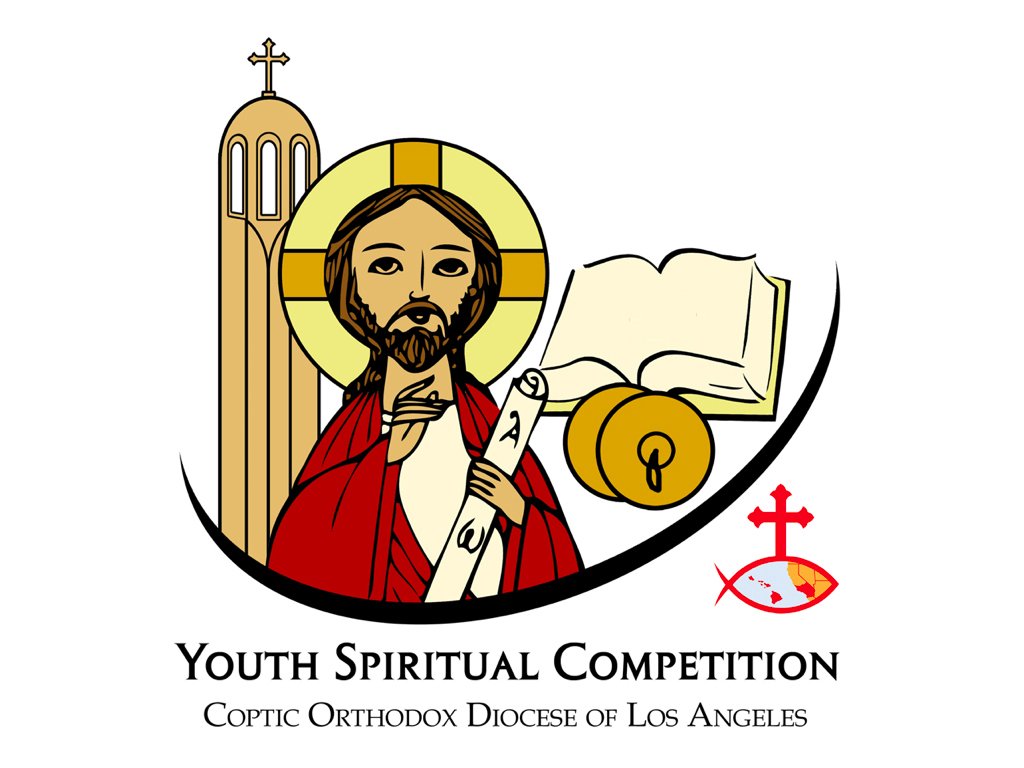YSC WRITING COMPETITION
PURPOSES OF THE WRITING COMPETITION
The purposes of the competition are to promote greater interest in the writings of the Fathers generally, and to encourage individual exploration and scholarship within writings of the Fathers. The ultimate hope of His Eminence Metropolitan Serapion, and of this competition, is that individuals will devote their lives to learning the Fathers for the benefit of God’s kingdom and the Coptic Orthodox Church.
TOPIC
Students may focus on any one of the following prompts:
Prompt 1:
One of your friends from school noticed you studying the book of Leviticus and began to complain how confused it made him. He feels the rules are outdated and irrelevant, and sometimes even discriminatory in our present times. He asks why Christians are not following all the rules in their Holy Book and why there are such laws in the first place. In other words, he asks you why anyone would read the book of Leviticus. How do you respond?
Prompt 2:
Write an essay addressed to a dear friend from a Pro-Chalcedonian church explaining our position concerning the Nature of Christ, the relevant Christological terms (such as hypostasis, physis, our liturgy, and our history), and what they mean to us.
Prompt 3:
Write an essay addressing what Leviticus teaches us about sin, including God's attitude towards sin, sin's effect on mankind, the need for sacrifice, the effect of sin on our community, and the need for repentance.
Prompt 4:
One of the aspects of Leviticus is how God called and sanctified His people and distinguished them from the rest of the nations. Today, society demands that Christians assimilate to its standards and live according to its principles. How does Leviticus teach us to be separated from the world so that we may be sanctified unto God?
Prompt 5:
The Chalcedon material concluded with a section regarding the modern dialogue between Eastern and Oriental orthodox. Using additional research regarding the ongoing dialogues today, please describe the modern effort and how far the Oriental and Eastern Orthodox Churches are from reconciliation.
CATEGORIES AND REQUIREMENTS
The competition is limited to participants competing at the High School or College level in the Youth Spiritual Competition.
Participants should submit one essay, 5 to 7 pages in length single-spaced (or 10-12 pages in length double-spaced), including footnotes or endnotes, using twelve-point font (Times New Roman) and one-inch margins. Footnotes should be in ten-point type. Footnotes and citations should be according to the Modern Language Association (MLA) formation.
RESOURCES
Besides using the material posted on the YSC, youth are encouraged to seek out resources that are sound in Orthodoxy and in line with the Coptic Orthodox faith. Prizes will be awarded on the basis of your synthesis of information and creativity.
PRIZES
Winners will be awarded $500 towards a certificate course at St. Athanasius and St. Cyril Coptic Orthodox Theological School (ACTS). The name of the winner(s) in each category will be posted online on the YSC website.
ELIGIBILITY
The competition is open to all participants of high school or undergraduate age (freshman in high school through age 25). College graduates 25 years of age or under may still participate in the College team. A participant does not need to be competing in the YSC Competition in order to submit an entry for the Writing Competition.
ENTRY INFORMATION
Entries for the competition must be submitted by 11:59 pm on July 23, 2023 via email to the YSC Committee at info@ysc-keraza.org. Winners will be notified at the YSC Competition.
The contestant’s name and other identifying markings such as school name or church name are not to be on any copy of the submitted entry. Entries must be accompanied by a separate piece of paper listing the individual’s name, contact information, Father of Confession, and church parish. An individual working for the competition will assign a random number to each entry and will record this number on all copies of each submission. The contestant’s identity, and church will not be known to any of the Competition judges. One copy of the entry must be submitted in Word format. Each entrant may submit only one entry.
AUTHORSHIP
Each entry shall be the original work of a single individual. Jointly authored submissions are not eligible. Submissions previously submitted for ACTS course credit, or submissions of a significantly similar paper submitted for ACTS course credit are not eligible.
Essay Submissions: The author must perform all the key tasks of reading the required text, selecting the topic, researching it, analyzing it, formulating positions and arguments, and writing and revising the paper for himself or herself. The author may inform another of the progress he or she has made in performing these tasks and accept a reasonable amount of responsive advice from academicians or theologians in the field, but the author must avoid collaboration with others altogether. The final product should reflect the author’s own ideas and work and not those of others.
CRITERIA AND JUDGING
All entries will be judged anonymously, under the guidance of His Eminence Metropolitan Serapion, His Grace Bishop Suriel, His Grace Bishop Abraham, and His Grace Bishop Kyrillos. The YSC Committee reserves the right not to award any prizes if it is determined that no entries are of sufficient quality to merit selection that year.
Entries will be judged based on the following criteria:
Originality and creativity of topic treatment;
Quality of analysis;
Quality of research and authority provided; and
Technical quality of writing, including organization, grammar, syntax, and form.

